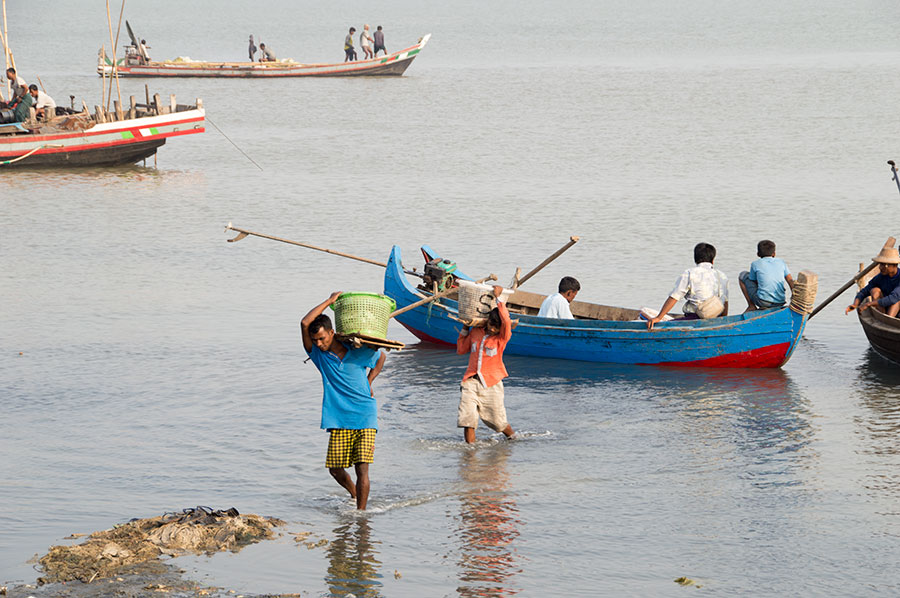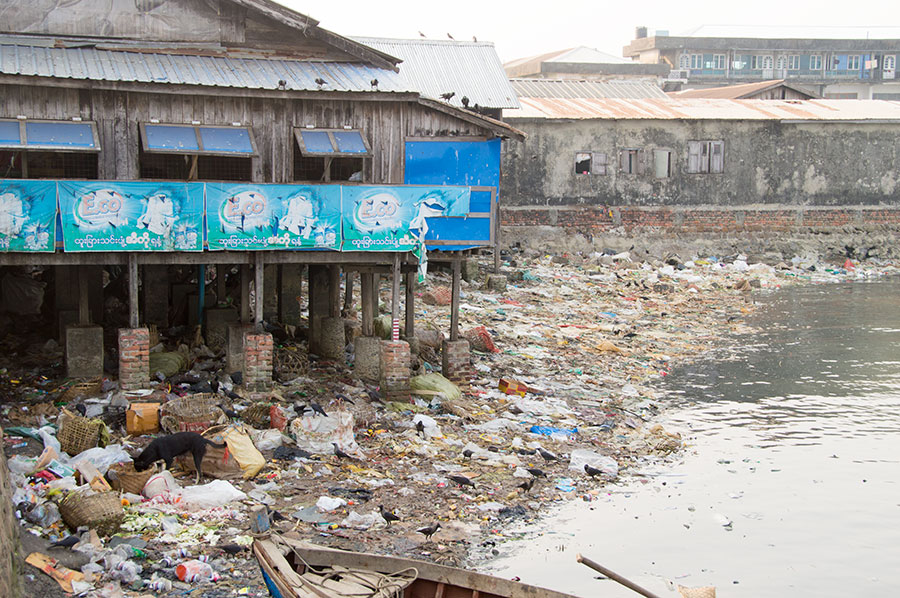I arrived in Myanmar, otherwise known as Burma, for the third time in four years and things felt different. It seemed calmer, the sense that someone was watching you wasn’t there anymore – that is until I arrived in Rakhine State.

Upon arrival in Sittwe, my passport was examined closely, numbers taken down and no smiles from the airport immigration officials. People here are not as light hearted as in other parts of the country, even covering their face if I pointed my camera in their direction.
Sittwe is the capital of Rakhine State and is home to refugee camps estimated to hold 140,000 Rohingya people. I wanted to get a glimpse of the refugee camps but decided against it. Instead I headed out on foot, my camera in hand, hoping to get a feeling for the city. The first thing I noticed was that there were plenty of bicycles, not only a great thing to see and photograph but also a sign that the city hasn’t lost out to the cheap Chinese motorbikes that I saw in cities like Mandalay.
As I walked down Merchant Street towards the wharf, I was struck by the colors in the market. I got closer to the loading docks and began to venture into areas where they were weighing and drying fish. Young boys were hauling containers of fish from the tenders, walking the plank onto shore, carrying the large buckets through loads of trash and into the market area.

As I walked toward the fishing wharf, I wondered whether or not I should be doing so, noticing a man watching me. I held my camera up, pointing to it saying, “OK?” He said, “OK, OK” a term that is a Burmese term I hear a lot, sometimes meaning, “I don’t know” or “I don’t understand, let me try and figure out what you are saying” but usually it is OK so I headed out toward the end of the docks. The hulls of the boat were filled with fish, and again, young dark skinned boys, likely local Rohingya boys were carrying fish off the boats in heavy containers.
If you get off the beaten path in Burma, what you see sometimes takes its toll on your mind, body and soul. As I turned to walk back towards the market, I looked at the shorelines of what would be a beautiful scene to see tons of garbage, much of it plastic, lining the banks on both sides of the harbor for 20-30 feet deep for as far as my eye could see.
I made my way off the docks thinking about the boys working on the boats. As I sat there looking at this scene wondering what they can do, something large hit the water in front of me. A lady simply threw a large bag of garbage into the sea and headed back into her house as if this is how you dispose of trash. It’s a sorry state of affairs not only here in Sittwe but in Yangon and other big cities as the trash and plastic pile up with no solution in site.
Read Ethical Traveler's Reprint Policy.
